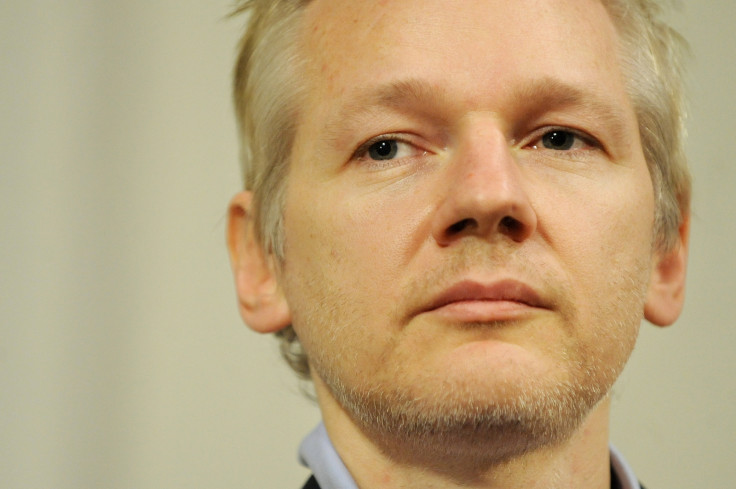Julian Assange: Some DNC leaks may have come from Russian hackers, but not WikiLeaks'
The WikiLeaks founder maintained his source was not state-sponsored.

Julian Assange, founder of WikiLeaks, has said some of the cyberattacks against the Democratic National Committee (DNC) may have been the work of Russian hackers, but denied that anything published by his whistleblowing website was submitted by Vladimir Putin's state.
Speaking on Sean Hannity's radio show on 15 December, Assange made reference to a little-known website called DCLeaks and a mysterious figure called Guccifer 2.0 – both suspected to be fronts for Russian propaganda. He said these may have Kremlin links but were not related to WikiLeaks.
"There is a conflation between three things: WikiLeaks' publications, alleged hacks on the US voting system and other publications appearing on the internet that basically no-one has heard of, that didn't have any impact in the election," he said.
"There is a website called DCLeaks and a WordPress website run by a guy calling himself Guccifer 2. Who is behind these we don't know [...] those look very much like the Russians but in some ways they look very amateur and they look too much like it."
Since WikiLeaks released nearly 20,000 emails from the DNC and 60,000 more from the personal inbox of a close Clinton aide called John Podesta, US intelligence has publicly accused WikiLeaks of releasing documents initially stolen by state-sponsored hackers. Assange denies this.
Asked about the source of the leaks, Assange refused to elaborate, but re-asserted it was not from "a state". He said: We know where it came from originally, it's John Podesta, from the DNC." When pushed to categorically say it wasn't from Russia, he had a one-word answer: "Correct."
The US government believes the opposite is true. "Disclosures of alleged hacked e-mails on sites like DCLeaks.com and WikiLeaks and by the Guccifer 2.0 online persona are consistent with the methods and motivations of Russian-directed efforts," read a statement published in October.
One of the main criticisms of WikiLeaks, often from from supporters of the Democratic Party candidate, was that it failed to focus on President-elect Donald Trump during the months before the November 2016 election.
Assange said this was because he only received "three pages" of information on Trump, and that it was already public in the public domain.
When pressed to address recent claims made by Craig Murray, a former UK ambassador who said he was personally involved in obtaining the DNC leaks, Assange said: He is a friend of mine. He is not authorised to speak on behalf of WikiLeaks. I just don't want to go anywhere near that."
On 16 December, Dmitry Peskov, Russian president Vladimir Putin's spokesman, said US accusations of widespread email hacking were unfounded and "indecent". He added: "They need to either stop talking about this or finally present some sort of proof. Otherwise this looks extremely scurrilous."
The Central Intelligence Agency (CIA) has said it believes the ultimate aim of the hacking campaign was to help elect the Republican candidate, Donald Trump.
Putin has to "feel some pain"
Meanwhile, President Obama has upped his own personal rhetoric about a possible response.
"I think there's no doubt that when any foreign government tries to impact on the integrity of our elections, that we need to take action and we will, at a time and a place of our own choosing," he said. "Some of it may be explicit and publicised. Some of it may not be."
According to Michael Morell, a former director of the CIA, the response needs be urgent, and strong. "I think that our response needs to have two key pieces to it," he said in an interview with The Cipher Brief. "One is it's got to be overt. It needs to be seen.
"A covert response would significantly limit the deterrence effect. If you can't see it, it's not going to deter the Chinese and North Koreans and Iranians and others, so it's got to be seen.
"The second, is that it's got to be significant from Putin's perspective. He has to feel some pain, he has to pay a price here or again, there will be no deterrence, and it has to be seen by the rest of the world as being significant to Putin so that it can be a deterrent."
© Copyright IBTimes 2024. All rights reserved.






